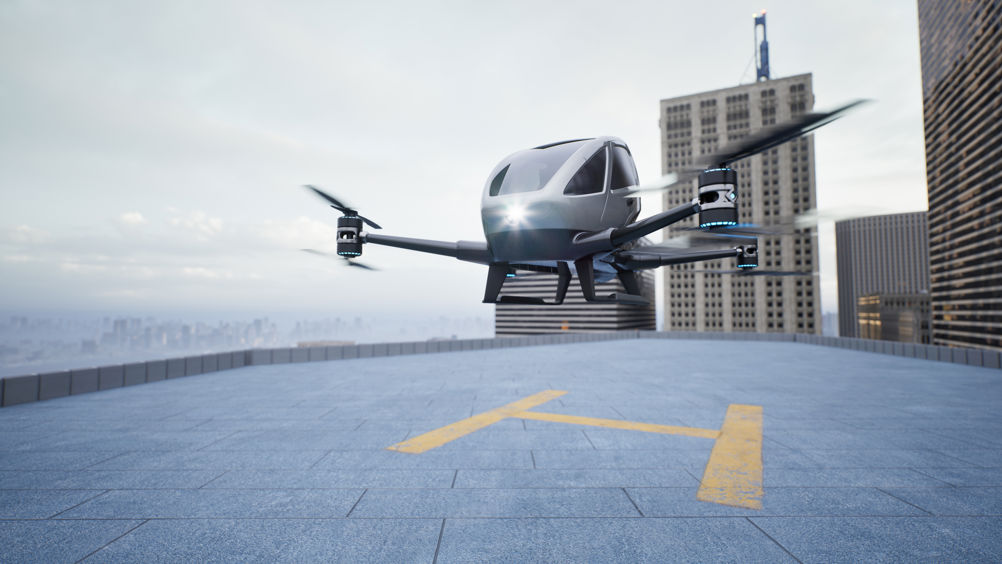The UK’s aerospace sector is one of the most advanced and dynamic industries in the world. A key pillar of the UK economy, it contributes significantly to both employment and national revenue. The sector is characterised by a rich history of innovation and engineering excellence, making it a crucial area for those interested in careers that push the boundaries of technology and aviation.
The industry generates an impressive annual revenue of around £35 billion, contributing significantly to the UK's GDP. The sector supports over 120,000 direct jobs, with many more indirectly connected through supply chains and related services. The UK is recognised globally for its expertise in the design and manufacturing of a multitude of aerospace components, including wings, engines, and advanced avionics systems.
Types of Aerospace Technology in the UK
Commercial Aircraft: The UK plays a crucial role in manufacturing major components for large commercial aircraft. For instance, wings for Airbus aircraft are designed and built in the UK.
Military Aircraft: The UK's defence aerospace sector produces advanced fighter jets like the Eurofighter Typhoon, as well as unmanned aerial vehicles (UAVs) for surveillance and combat roles.
Spacecraft and Satellites: With a growing space industry, UK companies are involved in designing and manufacturing satellites and components for space exploration missions.
Helicopters and Rotary-Wing Aircraft: Companies like Leonardo Helicopters, based in Yeovil, design and manufacture advanced helicopters used by both civilian and military operators worldwide.
Propulsion Systems: The UK is a leader in aerospace propulsion, with Rolls-Royce being one of the world's largest manufacturers of aircraft engines, supplying both commercial and military markets.

Key Trends Driving the UK Aerospace Sector
Artificial Intelligence (AI) and Automation
AI and automation are transforming aerospace manufacturing and operations. From AI-driven design tools that optimise aircraft components for performance and weight reduction to autonomous drones and aircraft, these technologies are enabling faster, more efficient, and safer operations. AI is also being used in predictive maintenance, helping airlines reduce downtime and improve the reliability of aircraft.
3D Printing
3D printing is revolutionising the way aerospace components are designed and manufactured. This technology allows for the production of complex geometries that would be difficult or impossible to achieve with traditional manufacturing methods. It also reduces material waste and can significantly shorten production times. In the UK, companies are increasingly adopting 3D printing to produce lightweight and high-strength parts for both commercial and military aircraft.
Sustainable Aviation and Green Technologies
With increasing pressure to reduce carbon emissions, the aerospace industry is focused on developing more sustainable technologies. This includes the development of electric and hybrid-electric propulsion systems, sustainable aviation fuels (SAF), and improvements in aerodynamics to reduce fuel consumption. The UK government and industry are heavily investing in research and development in this area, aiming to lead the transition to greener aviation.
Urban Air Mobility (UAM)
Urban Air Mobility (UAM) is an emerging sector focused on the development of small, electric vertical take-off and landing (eVTOL) aircraft for short-range urban transportation. These vehicles have the potential to revolutionise urban transport, reducing congestion and providing a new mode of sustainable travel. The UK is home to several start-ups and research initiatives working on UAM technologies.
Space Exploration and Commercialisation
The UK space sector is growing rapidly, with increasing involvement in space exploration missions and the commercialisation of space. The UK Space Agency, along with private companies, is working on satellite deployment, space tourism, and even lunar exploration. This sector offers exciting opportunities for engineers interested in pushing the boundaries of what is possible in space.
Types of Organisations in the Sector
Original Equipment Manufacturers (OEMs)
OEMs are the large companies that design and manufacture complete aircraft or major systems within them. In the UK, key OEMs include Airbus UK, responsible for wing design and manufacturing; Rolls-Royce, a global leader in aircraft engine manufacturing; and BAE Systems, one of the largest defence contractors in the world, producing military aircraft, submarines, and advanced electronic systems.
Tier 1 Suppliers
Tier 1 suppliers, such as UK-based GKN Aerospace, are companies that supply major subsystems or components directly to OEMs. These companies often specialise in areas like avionics, landing gear, or flight control systems.
SMEs and Startups
The UK aerospace sector is also supported by a vibrant network of SMEs and start-ups that provide specialised products and services, often focusing on niche areas of the market. These companies are crucial for innovation, bringing new technologies and processes to the industry. For instance, Reaction Engines is an Oxford-based pioneering company developing the SABRE engine, which has the potential to revolutionise space travel by enabling single-stage-to-orbit flight, while Vertical Aerospace is developing eVTOL aircraft that could transform urban transportation.
Research Institutions and Academia
The UK aerospace sector is also supported by a strong academic and research infrastructure. Universities like Imperial College London, Bristol University, and Cranfield University conduct cutting-edge research in aerospace engineering, often in collaboration with industry. These institutions play a vital role in advancing aerospace technology and training the next generation of engineers.

Career Opportunities for Engineering Graduates
Design and Development Engineering
Design engineers are responsible for creating the blueprints for new aircraft, components, or systems. This role often involves working with advanced software tools to model and simulate designs before they are manufactured. Design engineers need strong analytical skills and creativity to solve complex engineering challenges.
Manufacturing and Production Engineering
Manufacturing engineers work on the production of aerospace components, ensuring that they are made to exact specifications and quality standards. This role can involve working with cutting-edge technologies like 3D printing and automation. Manufacturing engineers need to have a good understanding of materials science, production processes, and quality control.
Systems and Software Engineering
Systems engineers work on the integration of various subsystems within an aircraft, ensuring they work together seamlessly. This role requires a broad understanding of different engineering disciplines and strong problem-solving skills. Software engineers, on the other hand, develop the software that controls various aircraft systems, from flight controls to in-flight entertainment.
Research and Development
R&D roles involve working on new technologies and innovations that will shape the future of aerospace. This could include anything from developing new materials for aircraft to working on AI systems for autonomous flight. These engineers often work closely with academia and may be involved in both theoretical and applied research.
Project Management
For those who enjoy overseeing complex projects, project management roles in the aerospace sector can be very rewarding. Project managers coordinate the efforts of various teams, ensuring that projects are completed on time, within budget, and to the required standards.
Quality and Safety Engineering
Quality and safety engineers play a crucial role in ensuring that all aerospace products meet stringent safety and performance standards. This role involves conducting tests, inspections, and audits, and implementing processes to ensure continuous improvement. Attention to detail and a strong understanding of regulatory requirements are therefore key for this role.
The UK aerospace sector is a dynamic and exciting field with a wide range of opportunities for engineering graduates. With its rich history of innovation and a strong focus on future technologies, the sector offers a challenging and rewarding career path for those with the right skills and passion for aerospace.
Whether you're interested in design, manufacturing, research, or management, the aerospace industry has something to offer, and with the right preparation, you can play a part in shaping the future of flight.
The Student Engineer is a special channel of The Engineer aimed at educating and inspiring engineering undergraduates about the career opportunities in engineering and also offering practical advice on how they can access these opportunities.











McMurtry Spéirling defies gravity using fan downforce
Ground effect fans were banned from competitive motorsport from the end of the 1978 season following the introduction of Gordon Murray's Brabham...